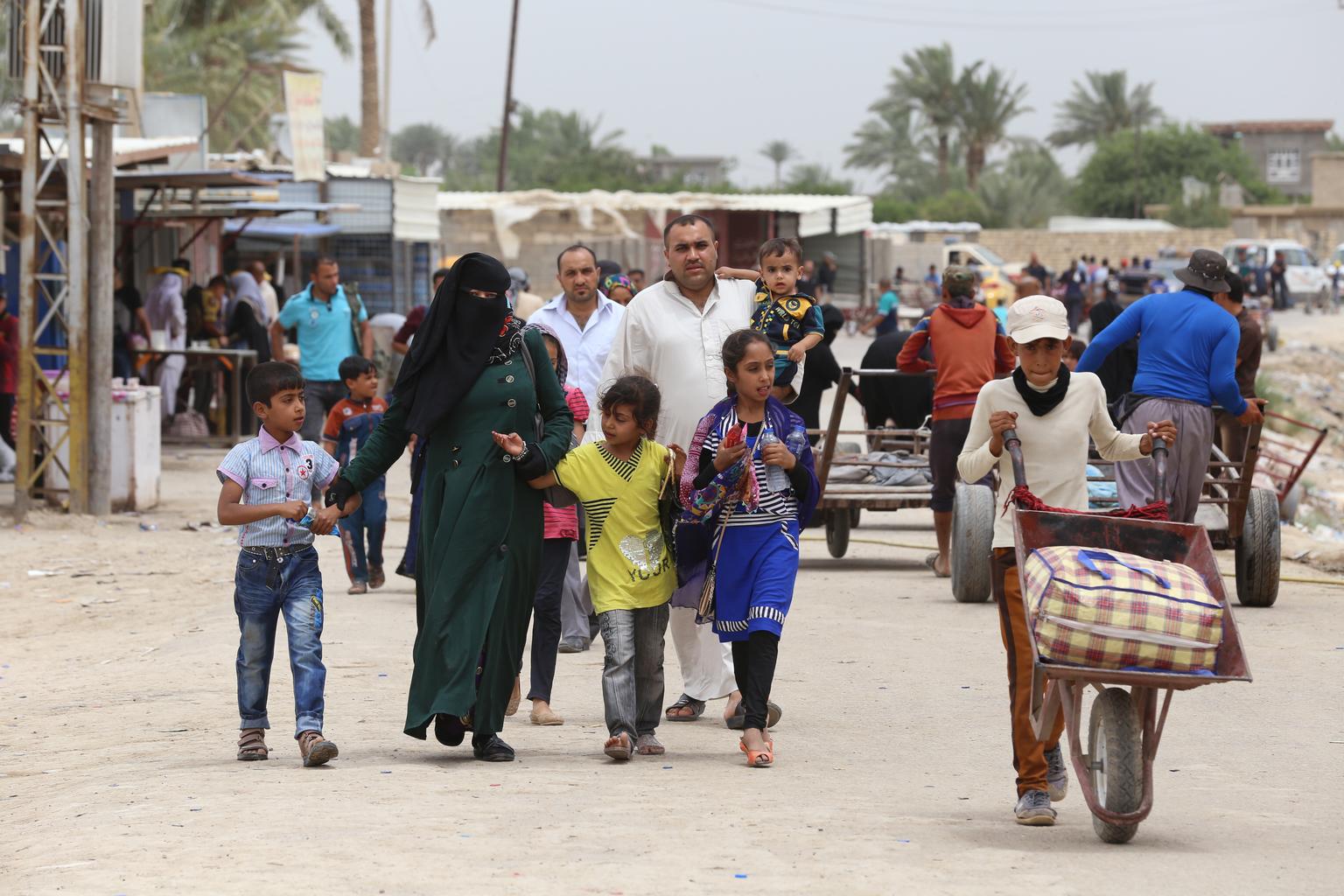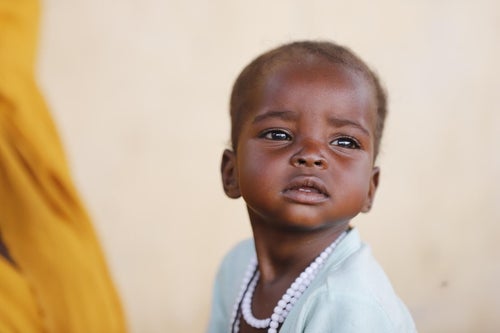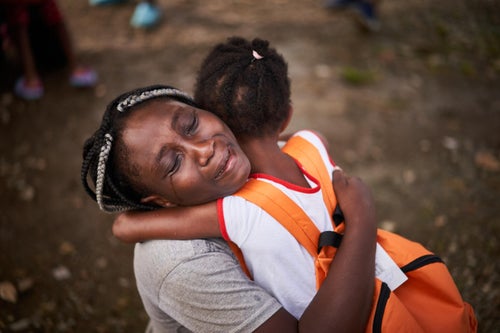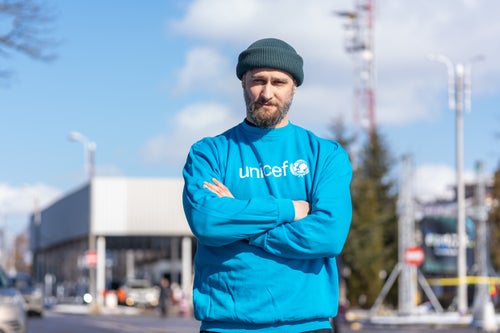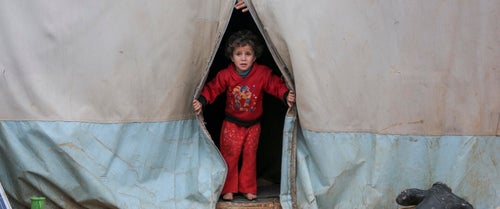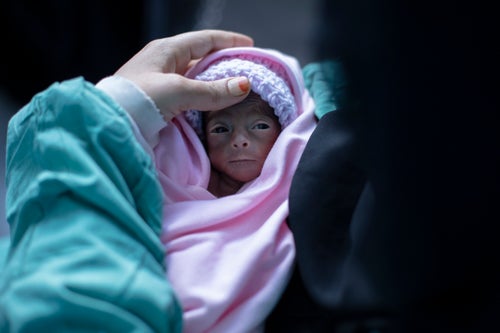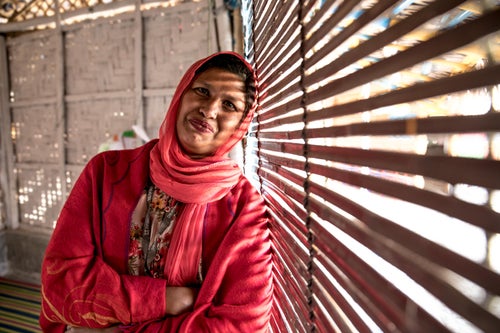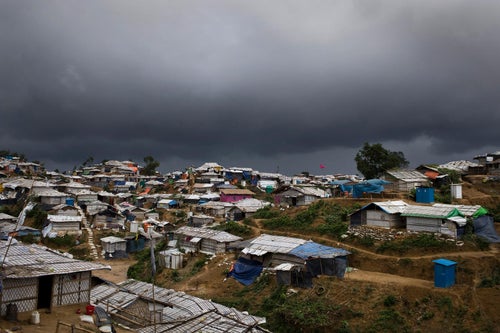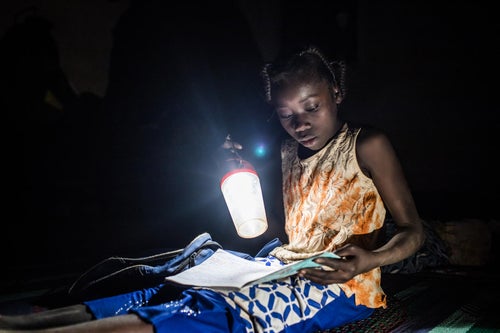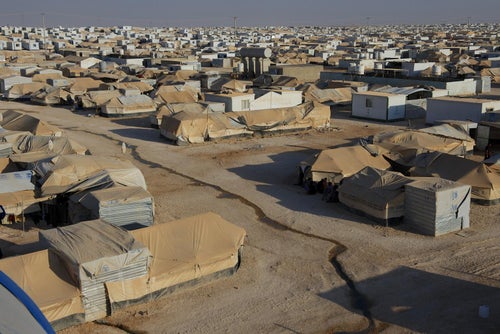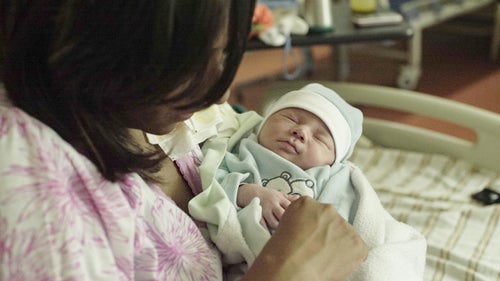Statement by Peter Hawkins, UNICEF Representative in Iraq
“As the violence intensifies in Fallujah, children continue to be trapped in the city and its surroundings.
“UNICEF estimates that at least 20,000 children remain inside Fallujah, 60kms West of Baghdad. According to reports, food and medicine are running out and clean water is in short supply.
“Since the start of the military operation in Fallujah, very few families were able to leave. Most of these families moved to two camps while others sought refuge with relatives and extended families.
“As the violence continues to escalate in Fallujah and across Iraq, we are concerned over the protection of children in the face of extreme violence. Children face the risk of forced recruitment into the fighting, strict procedures for security screening and separation from their families.
“Children who are forcibly recruited into the fighting see their lives and futures jeopardized as they are forced to carry and use arms, fighting an adults’ war.
“UNICEF calls on all parties to protect children inside Fallujah, provide safe passage to those wishing to leave the city and grant safe and secure environment to civilians who fled Fallujah.”
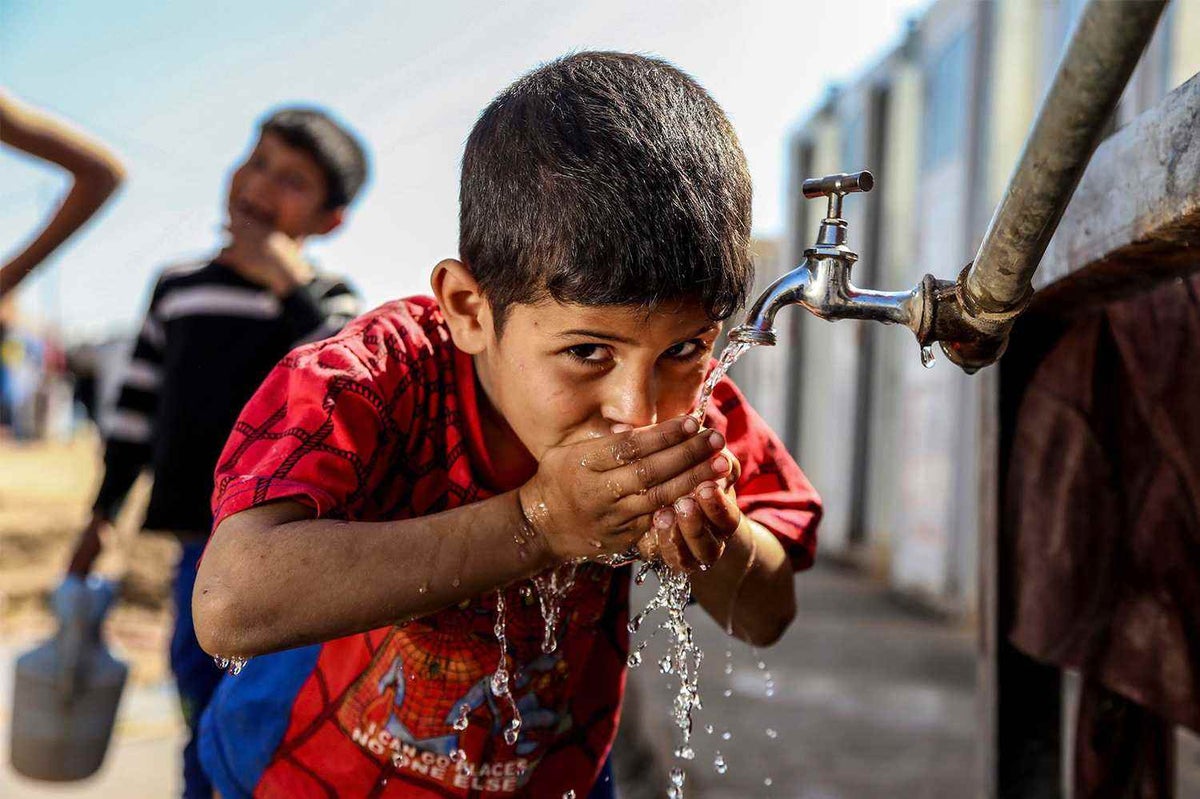
Emergency aid for fleeing families
UNICEF is reaching children and families with life-saving support as they flee from violence in Fallujah and the region. At least 60,000 people have been displaced in Anbar governorate since March and now, intense hostilities are forcing even more to flee.
In recent weeks, UNICEF teams have:
- Worked with partners to deliver 7,212 rapid response kits. Each kit supports a family of seven for one week and contains 18 litres of drinking water, 12kg of food rations and soap, nappies and hygiene supplies.
- Made daily deliveries of 25,000 litres of safe water for drinking, cooking and washing.
- Helped the construction of 25 toilets and showers in three transit sites.
- Supported child friendly spaces where children can stay safe, play and get the psychosocial care they need to cope with the profound stress of conflict.
- Vaccinated thousands of displaced children against measles and polio.
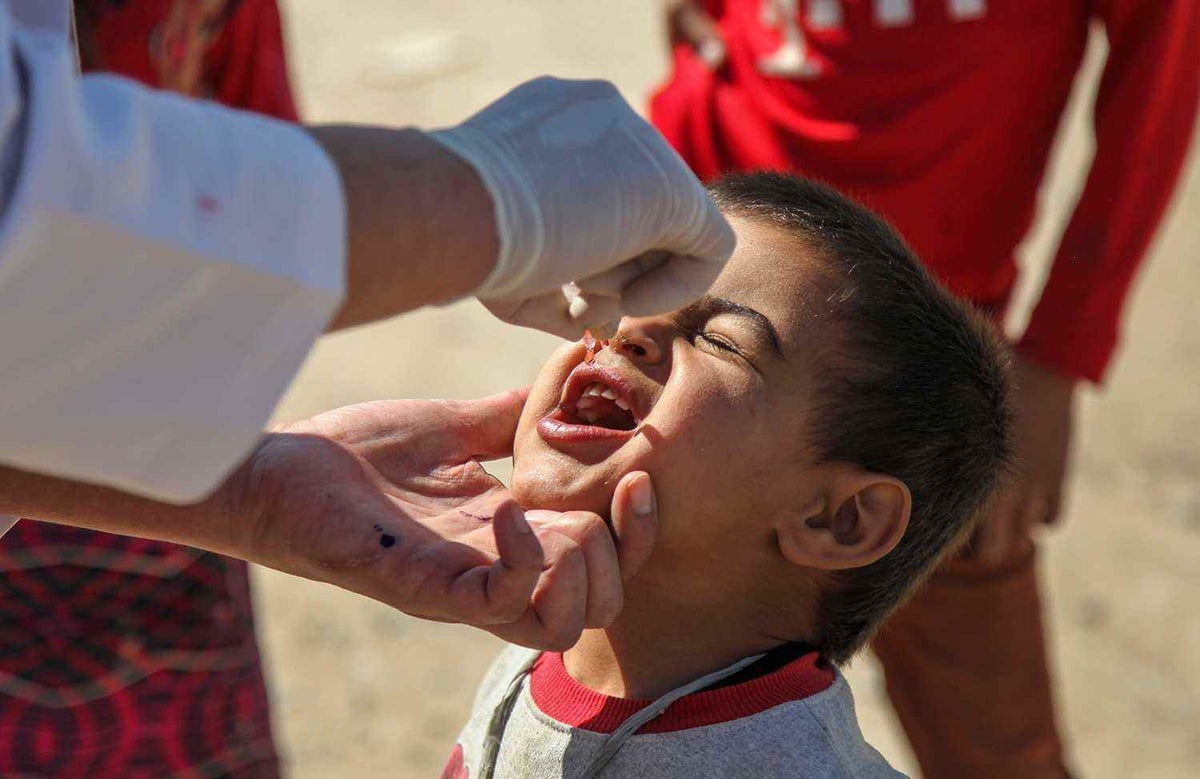
10 million in need across Iraq, children hit hardest
Conflict in Iraq has thrown millions of lives into utter chaos. Ten million people urgently need humanitarian aid - nearly half of them children.
UNICEF estimates that one in every five schools is destroyed or closed. More than 600,000 displaced children have missed an entire school year, placing girls at increased risk of early marriage and other forms of gender-based violence.
Boys are vulnerable to becoming child labourers and remain at risk of recruitment into armed groups. Since the start of 2014, more than 2,600 children have suffered grave violations of their rights, including killing, maiming and abduction.
Water and sanitation infrastructure remains weak in many areas and hospitals have been destroyed in the conflict. Public health services are overwhelmed, leaving pregnant women, new mothers, infants and young children at serious risk.
UNICEF is delivering emergency aid and support on a huge scale. In 2016, UNICEF is working to:
- Reach 823,000 people with clean, safe water, toilets and hygiene supplies.
- Immunise 5.6 million children against the threat of polio that looms in conflict zones.
- Give 550,000 children the educational supplies they need to keep learning.
- Provide 14,655 households direct cash transfers to they can buy essentials for their children from local markets.
- Support 131,200 children with psychosocial care so they can build resilience and recover.
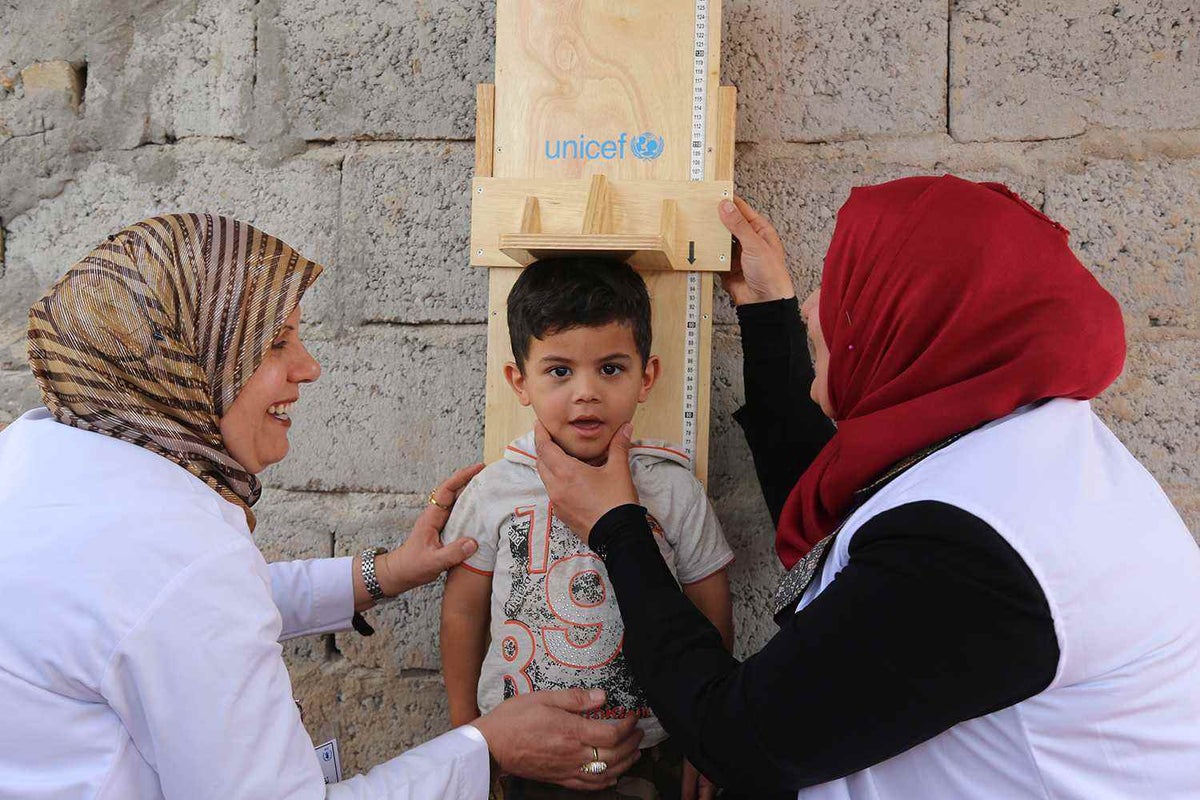
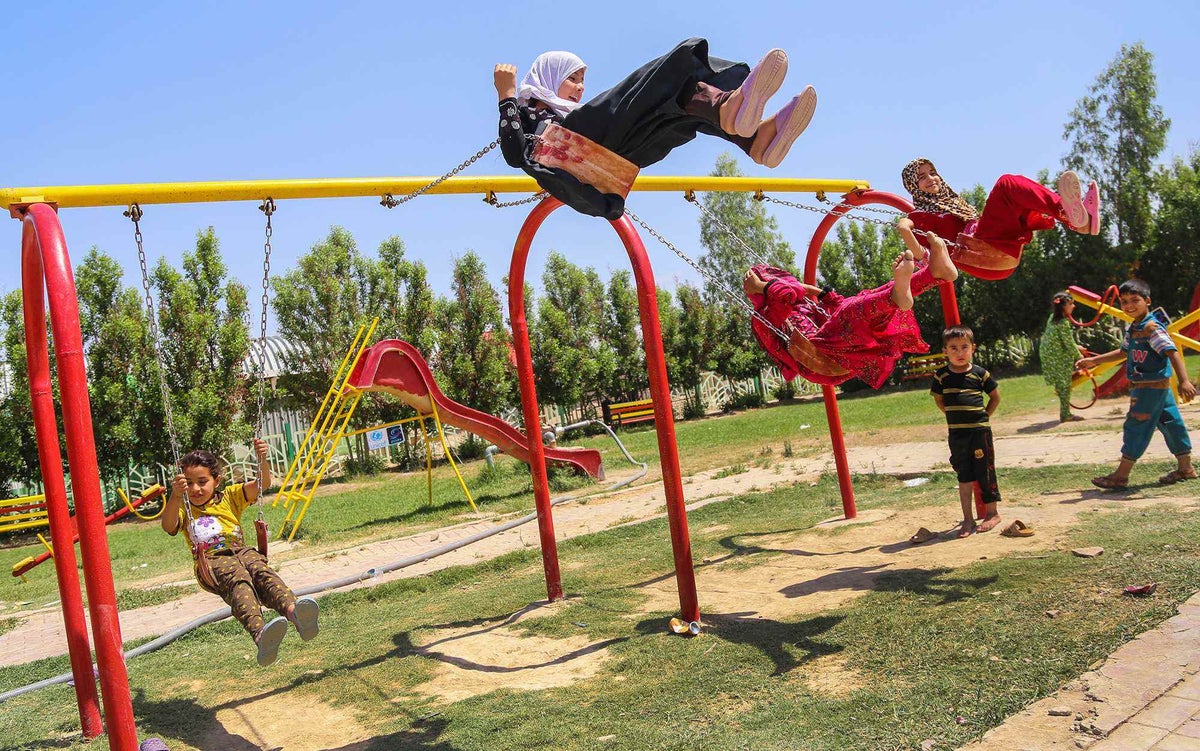
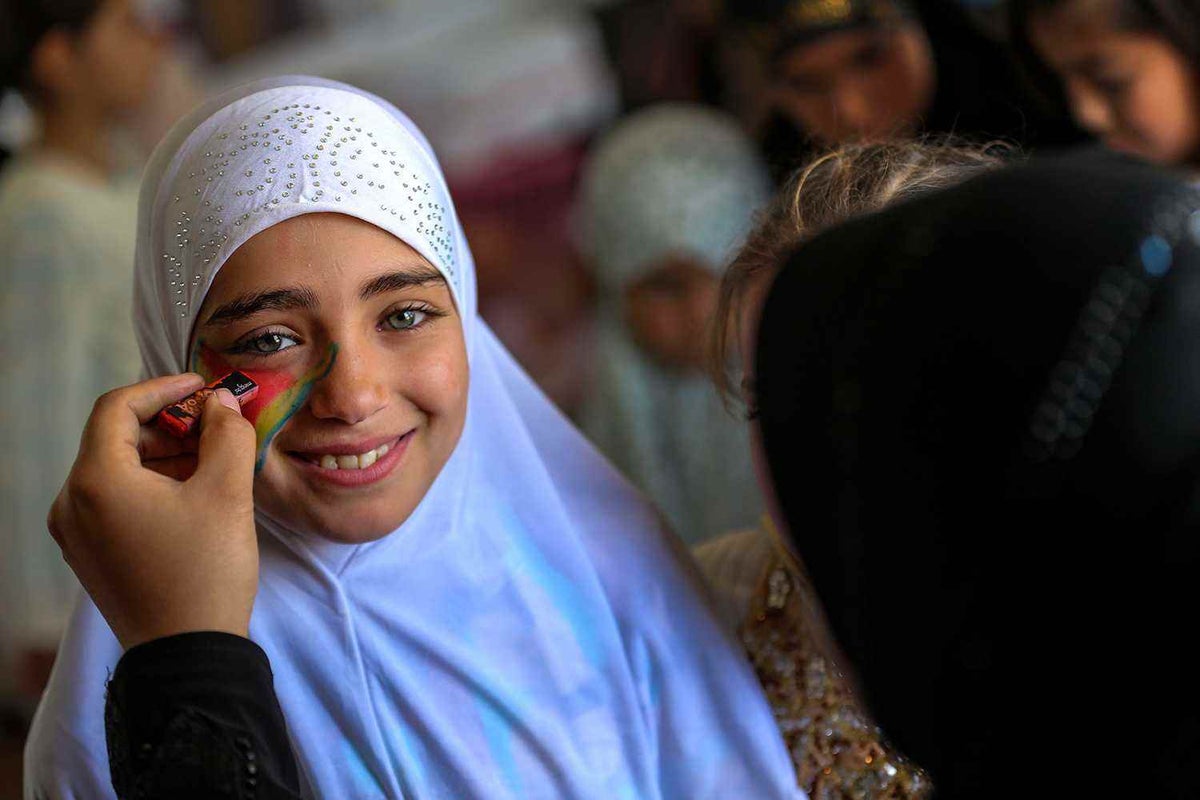
No child too far
UNICEF believes in a fair chance for every single child, without exception. It's why our teams in Iraq are committed to the hard and dangerous work of reaching children in conflict zones; why our staff will cross rivers and deserts to reach children in the world's most remote communities.
You can make it possible. A monthly gift provides the reliable resources UNICEF needs to continue its work in more than 190 countries, delivering lifesaving water, health and nutrition supplies wherever children need us most.
Become a Regular Donor
For every child in crisis.
Related articles
Stay up-to-date on UNICEF's work in Australia and around the world



